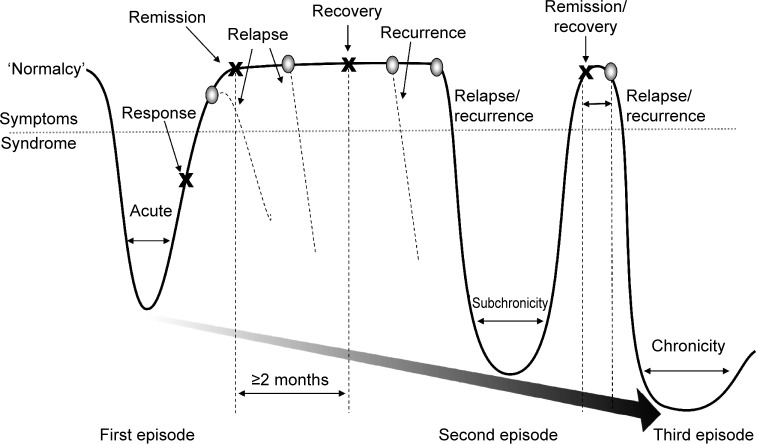Figure 1.
Schematic representation of major depression.
Notes: Response to treatment occurs when there is a clinically meaningful degree of symptom reduction, typically defined as ≥50% reduction in pretreatment symptom severity. Remission occurs when the symptoms of the MDE are absent or close to it. Without validated biomarkers, recovery may not be clinically distinguishable from remission, but is implied after an extended asymptomatic period (≥2 months), following which the likelihood of an MDE is reduced. A relapse is defined as the return of the initial MDE following remission, while recurrence is defined as the development of a new MDE following the onset of recovery. Relapses or recurring MDEs of increasing severity and longer duration, shorter remission periods, and reduced therapeutic response over time contribute to the progression and chronicity of major depression. Adapted from Journal of Clinical Psychiatry. 1991, 52, Long-term treatment of depression. Kupfer DJ. 28–34.21 Adapted © from Sibille E, French B. Biological substrates underpinning diagnosis of major depression. International Journal of Neuropsychopharmacolgy. 2013;16(8):1893–1909 by permission of Oxford University Press.22
Abbreviation: MDE, major depressive episode.

